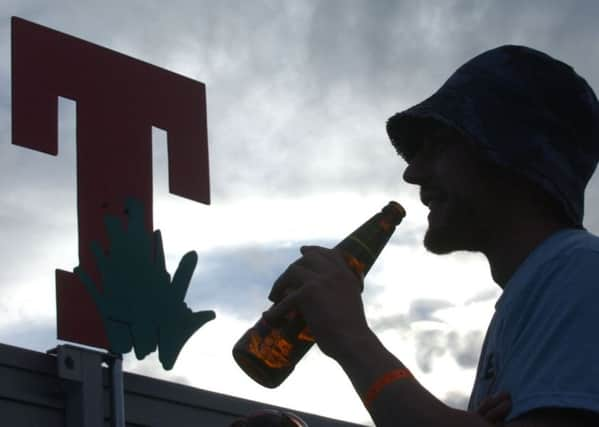Brian Ferguson: Why are Scotland's music festivals all disappearing?


The audience at the Scottish Music Awards has long cast aside any inhibitions as Fran Healy and his Travis band-mates lead the audience in their anthem Why Does It Always Rain On Me? And not for the first time that night thoughts turned to the event with which the song will forever be associated.
The announcement of T in the Park’s cancellation in 2017 cast an unmistakable shadow over what is normally an unbridled celebration, with Donald MacLeod, organiser of the annual fundraiser for music therapy charity Nordoff Robbins Scotland, describing its demise as “the elephant in the room”.
Advertisement
Hide AdAdvertisement
Hide AdIt was no surprise to hear award winners like Travis, Amy Macdonald, KT Tunstall and Twin Atlantic express their concern and hopes of a swift comeback.
Despite news leaking out about a new event on Glasgow Green next July, the announcement that T in the Park event was “taking a break” next year still came as a massive shock.
For all its troubles, and there have been many, it was still hard to believe one of Scotland’s signature events has been brought to a halt after 23 years.
As Geoff Ellis, the frontman of the event, made clear on Saturday, its problems began when he was put under pressure by the authorities to move its long-time home at Balado.
He blames the Health and Safety Executive for uprooting the event and forcing the relocation to what many fans felt was a much poorer site.
Despite Ellis’s insistence that Strathallan is the next best option, it is hard to imagine it returning there after this year’s shake-up failed to win over many doubters. A scaled-back event on an alternative site seems a far more likely option, as long as it is within relatively easy reach of Scotland’s four main cities.
If Ellis and his team are to rediscover the winning formula they will have to somehow tackle T in the Park’s unwelcome reputation for crime and disorder.
Advertisement
Hide AdAdvertisement
Hide AdThere is a wider worrying trend too. A decade ago, Scotland’s festival scene appeared to be booming with major new events like RockNess, at Loch Ness, Outsider, near Aviemore, and Connect, at Inverary Castle. Other like the Big Tent Festival, in Fife, soon joined them.
All have vanished from the landscape after announcing a temporary hiatus, only to fail to reappear.
The latest to suffer this fate is Wickerman, one of Scotland’s biggest outdoor events, with a large and loyal following. Another hugely successful event, Loopallu, is already warning it may also bid “farewell” after losing its site in Ullapool.
While there are undoubtedly individual issues, all have been affected by the increasingly tough economics of organising festivals. The red tape, health and safety demands, and costs demanded by the new national police service have created a perfect storm, before the vagaries of the weather are even considered.
But many surviving festivals are increasingly having to rely on acts who have been performing for decades, with Madness, The Proclaimers, Primal Scream and The Stone Roses among this year’s headliners.
Perhaps the biggest problem of all is a real lack of major new artists ready, willing and able to step into the spotlight.